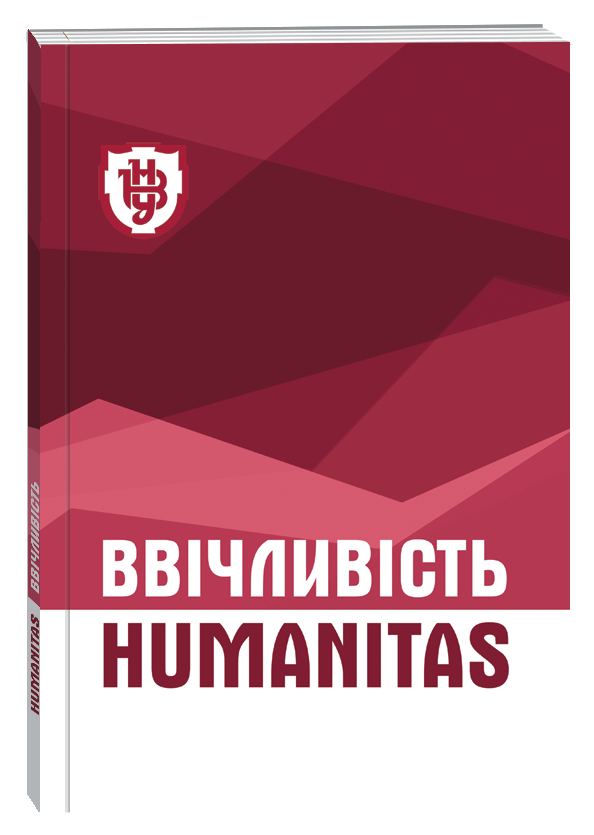FACTORS OF INFLUENCE ON THE ADDICTION FORMATION TO ANTIRETROVIRUS THERAPY IN ADOLESCENTS LIVING WITH HIV
DOI:
https://doi.org/10.32782/humanitas/2021.5.10Keywords:
adherence, HIV status, antiretroviral therapy, people living with HIV, adolescents living with HIV, center for HIV-infected children and youth, influencing factorsAbstract
The article reveals the influencing factors that contribute to the formation of conscious adherence in adolescents living with HIV to antiretroviral therapy. The results of sociological research are summarized, which cover the analysis of the reasons for discontinuation of antiretroviral therapy and discontinuation of antiretroviral therapy among people living with HIV and summarize scientific papers, which describe the features of adherence to therapy in adolescents living with HIV. The results of a questionnaire survey conducted in the community of the NGO “Adolescents of Ukraine” with adolescents living with HIV are presented. The problems and difficulties faced by adolescents living with HIV are outlined. The results of in-depth interviews with specialists of the Kyiv City Right Bank Center for HIV-infected children and youth to identify key factors influencing the formation of conscious adherence to antiretroviral therapy are presented. It is determined that among the factors influencing the formation of adherence to antiretroviral therapy in adolescents living with HIV are: early informing children about their status; special attention is paid to the formation of attachment in adolescents, as the group with the highest risks of separation from therapy in early adulthood; taking into account age peculiarities when disclosing a child’s HIV status; increasing the number of peer-to-peer groups; social and psychological support of adolescents; support and counseling and social support for parents, guardians of HIV-infected adolescents; explanatory and informational work with the adolescent on the effectiveness of treatment; support of the teenager in case of manifestations of side effects from reception of therapy; favorable and trusting social environment; taking into account the lifestyle of the adolescent, his individual lifestyle; prevention of risky behavior among adolescents living with HIV; combating stigma and discrimination on the basis of HIV status.
References
Балакірєва О., Бондар Т., Шевченко С. Дослідження «Поведінкове дослідження аналізу причин переривання антиретровірусної терапії та відмови від антиретровірусної терапії серед людей, які живуть із ВІЛ, та дітей». Київ, 2019. URL: https://phc.org.ua/sites/default/files/users/user90/Prychyny_pereryvannia_ART_report.pdf.
Бондаренко А., Козько В., Гвоздецька М., Юрко К., Черкасов О. Оцінка прихильності до антиретровірусної терапії у хворих на ко-інфекцію HIV/HBV. 2015. URL: http://ns1.knmu.edu.ua/bitstream/.
Демченко І., Скокова Л., Булига Н. Індекс стигми людей, які живуть з ВІЛ 2.0. Україна. 2020. URL: https://network.org.ua/wp-content/uploads/2021/02/INDEKS-STYGMY-LYUDEJ-YAKI-ZHYVUT-Z-VIL-2.0-1-1.pdf.
Журавель Т., Лях Т. Особливості соціально-психологічної підтримки осіб та сімей, які живуть з ВІЛ/ СНІД в Україні. Педагогічні науки: теорія, історія, інноваційні технології. 2015. № 8. С. 323–333. URL: https://elibrary.kubg.edu.ua/id/eprint/14613/.
Кисельова Г., Бейлі Х. Молодь, яка живе з ВІЛ, в Україні: Реалії, виклики, шляхи подолання. 2019. URL: https://www.unicef.org/ukraine/media/2891/file/HIV_Youth.pdf
Лютий В., Петрович В. Профілактика ВІЛ та соціально-небезпечних явищ серед дорослих: досвід «Програми 15». Науковий вісник Східноєвропейського національного університету імені Лесі Українки. Серія: Педагогічні науки. 2019. No 2(386). С. 91–103. URL: https://elibrary.kubg.edu.ua/id/eprint/27894/.
Панфилова О., Валько С., Медко А. Основные аспекты в раскрытии ВИЧ-позитивного статуса ребенку и формирование приверженности к АРВ-терапии у детей, живущих с ВИЧ. Тренинговый модуль. 2016. URL: https://teenergizer.org/media/2017/08/Metodichka_Tinerdzhai-zer-2.pdf
Статистика з ВІЛ/СНІДу. Епідемічна ситуація з ВІЛ-інфекції в Україні станом на 01.04.2019 р. URL: https://phc.org.ua/kontrol-zakhvoryuvan/vilsnid/statistika-z-vilsnidu.
ЮНЕЙДС (2021). Медленный прогресс в предотвращении смертельных случаев, связанных со СПИДом, среди подростков. URL: https://www.unaids.org/ru/resources/presscentre/featurestories/2021/october/20211004_aidsrelated-deaths-among-adolescents.
Arrivé, E., Ayaya, S., Davies, M. A., Chimbetete, C., Edmonds, A., Lelo, P., & Leroy, V. (2018). Models of support for disclosure of HIV status to HIV-infected children and adolescents in resource-limited settings. Journal of the International AIDS Society, 21(7).







